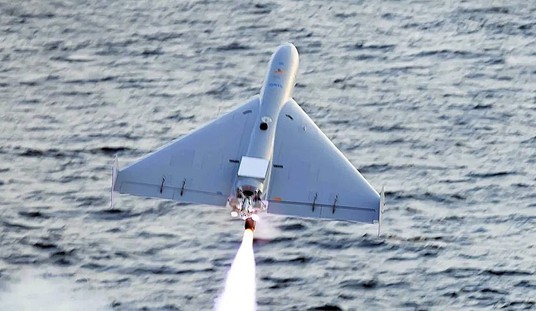Ever since Iran's largely failed missile and drone attack on Israel last Saturday, the world has been holding its breath waiting to see what Bibi Netanyahu would do in response. Despite the White House urging "caution" and "restraint," Israel clearly seems to realize that a failure to respond would only serve as a sign of weakness and an invitation for Iran to continue attacking at will. It's now being reported that Netanyahu's first impulse was to hit back quickly and decisively, potentially striking Iran on Monday evening. But Israel reportedly informed the White House on Monday that a decision had been made to wait a while longer. (Axios)
Israel considered conducting a retaliatory strike against Iran on Monday night but eventually decided to postpone it, five Israeli and U.S. sources told Axios.
Israel has vowed to respond to Iran's unprecedented missile and drone attack. The Biden administration has warned that an escalation with Iran wouldn't serve U.S. or Israeli interests and urged Israel to "be careful" with any retaliation, U.S. officials said. The U.S. is concerned that continued counterattacks could trigger wider regional escalation.
"We are not sure why and how close it was to an actual attack," a U.S. official said. A second U.S. official confirmed Israel told the Biden administration on Monday that it decided to wait.
A third U.S. official said a "small Israeli strike" inside Iran would likely trigger an Iranian retaliation. But the Biden administration hopes it would be more limited than Iran's strike on Israel on Saturday and would end the exchange of attacks between the two countries.
There is still speculation that the delay in Israel's response has been caused by Joe Biden stepping in and cautioning against a significant response. The Israeli war cabinet reportedly denies this. They had been ready to give the IDF a go-ahead to strike Iran on Monday but later tabled the plan "for operational reasons." Perhaps, but it still sounds to me as if they would have already hammered Iran appropriately if Biden hadn't stepped in.
A second, unnamed Israeli official reiterated yesterday that a decision to strike Iran has already been made. The only question remaining is when it would happen. Current and former IDF generals are reportedly pushing for a significant strike, but internal political concerns have some Israeli officials acting more cautiously.
The leader of the ultra-orthodox Shas party, Aryeh Deri, is among those urging caution inside of the government. He told his party newspaper on Tuesday that they need to focus on the battle to eliminate Hamas for now, not open up new fronts in an expanding war. Also, the final eradication of Hamas would weaken Iran's ability to launch attacks on Israel at the local level. All of that makes sense to a certain degree. Israel didn't suffer much actual damage from Iran's attack and Iran came away looking rather weak and impotent as a result. Also, the more damage their proxies take in the region, the less firepower they will be able to launch at Israel.
But at the same time, there has to be a certain level of national pride involved. Iran launched a blatant attack on Israel from their own soil which was an overt act of war. They shouldn't be allowed to get away with that. Israel doesn't need to destroy the country of Iran entirely (not that it would be such a terrible thing if they did), but they also shouldn't be expected to take an attack like that lying down. Perhaps a compromise could be found in the form of Israel sinking some of Iran's naval vessels and taking out a few more of their IRCG leaders.
Meanwhile, Iran is continuing to promise that any counterattack by Israel will bring a "severe and harsh response." Ebrahim Raisi summed up his warning to Israel by saying, "Don't attack." I'm left wondering if he understands the irony involved in saying that after Joe Biden's message was "Don't" and Iran attacked anyway. The "don't" message isn't selling very well these days and I highly doubt it will dissuade Israel either.








Join the conversation as a VIP Member